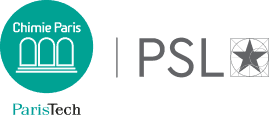Practical Biotechnology (Practical Lab)
Besides lectures on biological basic concepts, some specific practices in microbiology and bioprocess engineering, and some particular methods used in enzymology, molecular biology and histology are worthy of being directly…
Read MoreCorrosion (Electrochemical Stability of Materials)
Optimizing the functional lifetime of a material is a fundamental driving force for the development of new materials and in fact has been a preoccupation of our civilization from prehistory…
Read MoreModeling
This module aims to train the engineering student in quantum and classical modelling of complex systems (molecules, solids, biomolecules) of industrial interest. The methods used to describe spectroscopic properties (IR,…
Read MoreAsymmetric Synthesis and Retrosynthesis
Principles and tools in retrosynthesis and organic synthesis. Generalities, examples of disconnections and reconnections. Strategies: convergence, selectivities, cascade reactions, synthetic equivalents, polarity inversion. Activation methods, protection/deprotection of the main functional…
Read MoreOrganometallic Chemistry
This course describes the fundamental reactions of transition metal complexes and some (industrially relevant) catalytic cycles. This course provides an introduction to catalysis as a tool for the development of…
Read MoreMolecular Modeling
This module aims to train the engineering student in quantum and classical modelling of complex systems (molecules, solids, biomolecules) of industrial interest. The methods used to describe spectroscopic properties (IR,…
Read MoreBioinorganic Chemistry
Nature utilizes metal ions and metal complexes to undertake several crucial processes. In fact, a human being requires about 25 elements to have a healthy life, half of them being…
Read MoreHeteroelements and applied catalysis
The Chemistry of heteroelements course aims to present the different methods of preparation of phosphorus, sulfur and silicon reagents as well as the main transformations carried out with these compounds,…
Read MoreExperimental training for flow chemistry
This experimental training is offered as part of the Flow Chemistry option in Chemical Engineering for 2nd year students at school. It takes the form of a practical work course…
Read MoreFlow chemistry
Process intensification is part of an effort to improve the productivity and selectivity of chemical reactions, in particular through the use of micro / micro-structured reactors, in-situ reaction / separation…
Read MoreOptimization and process control
This course is divided in two parts. The first concern the design of experiments. This statistical and mathematical method allows to reduce the number of experiments and to optimize multifactorial…
Read MoreInorganic chemistry : from molecules to materials
The objective of this course is to give the rules of construction of all inorganic and mineral systems but also to show how much this inorganic chemistry is alive and…
Read More